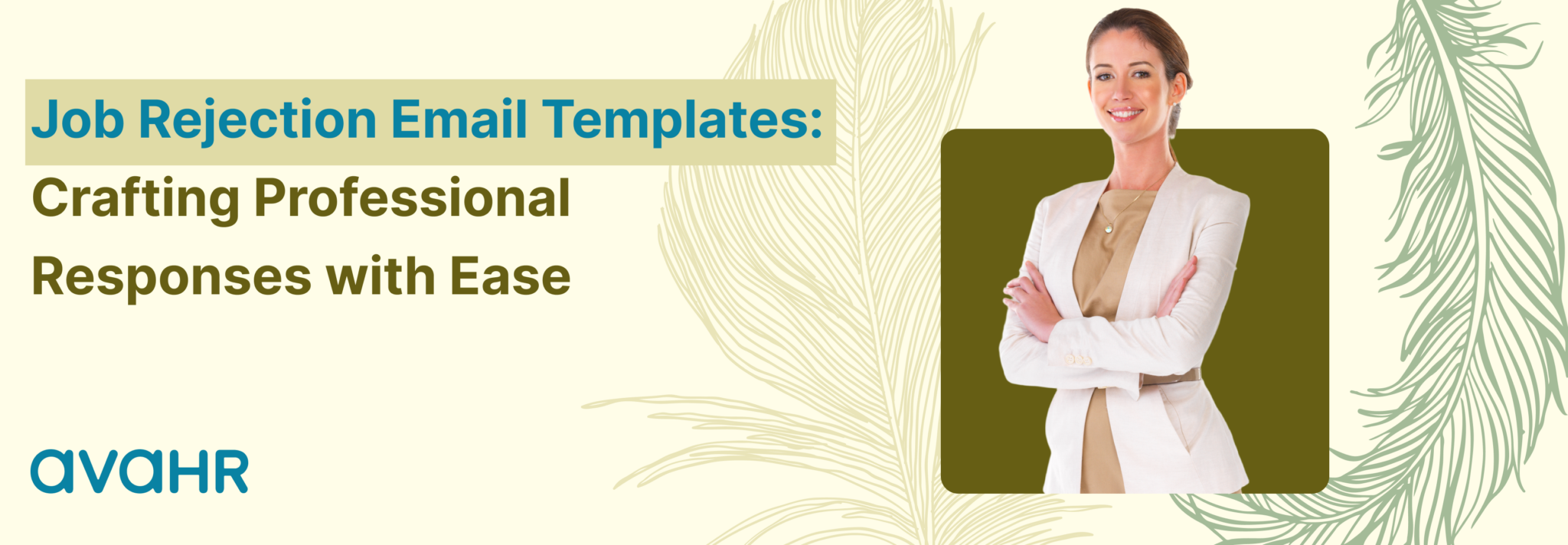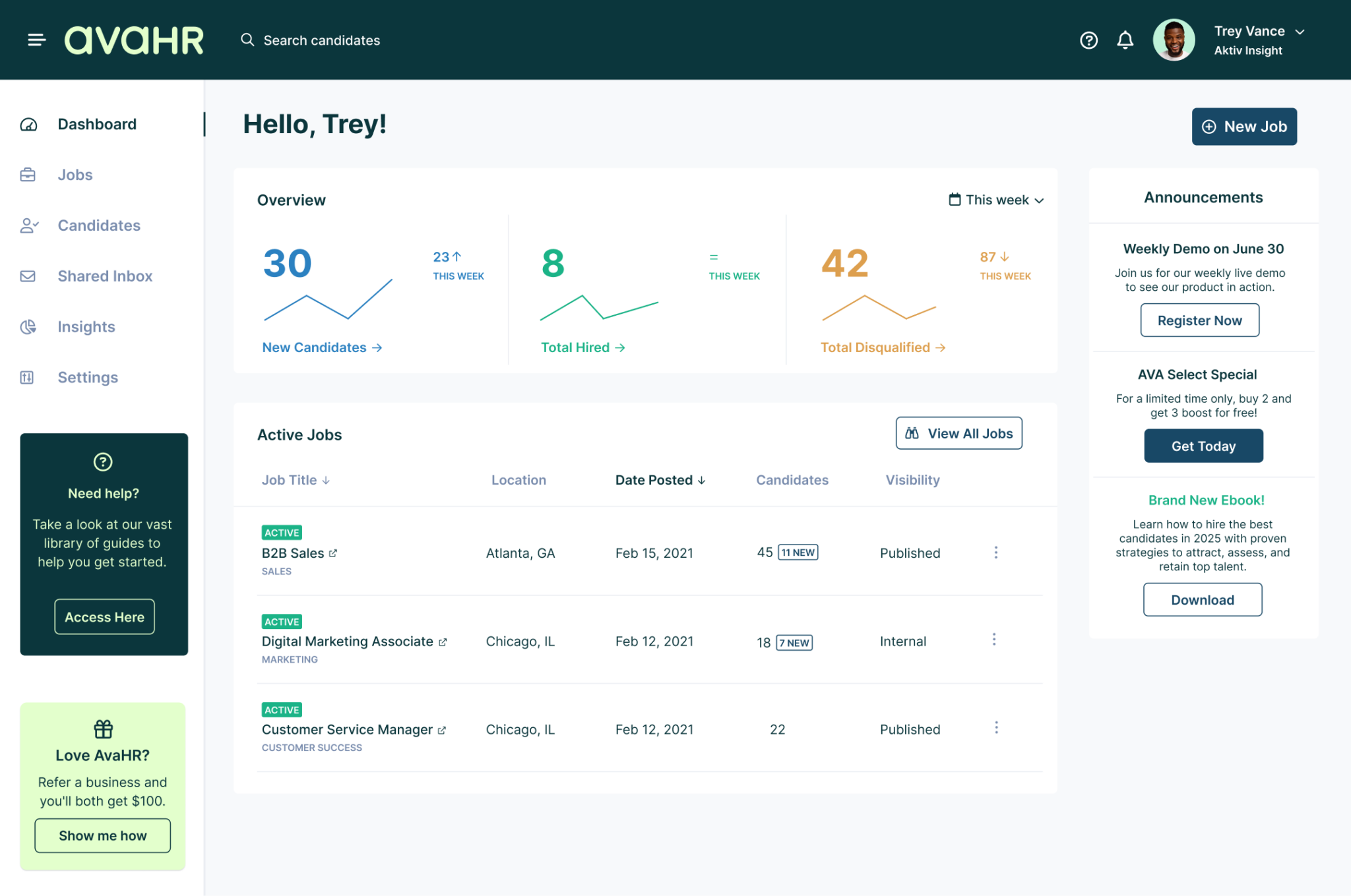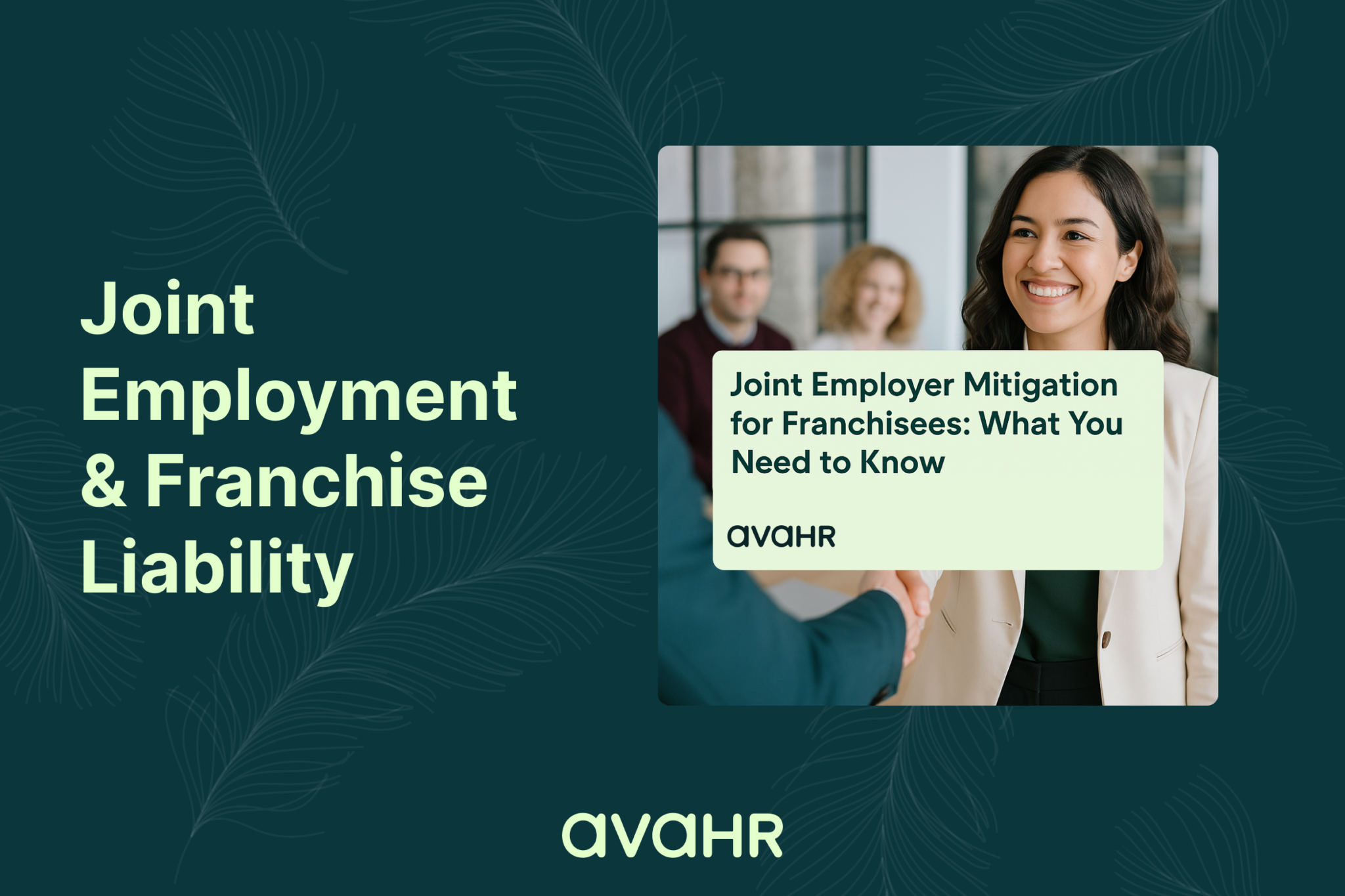
Job Rejection Email Templates
Does this sound familiar? You want to send a thoughtful job rejection email, but balancing empathy and efficiency is a challenge.
Ghosting people is not nice and hurts your brand, yet responding to every candidate feels overwhelming. And even when you do send a job rejection email, it’s tough to be professional without sounding cold or too encouraging. All while avoiding legal risks. If this struggle is all too real, you’re not alone.
We’re here to help you craft rejection emails that are not only efficient but also reflect your company’s values.
Ready to streamline your hiring process? Try AvaHR’s candidate rejection email templates for free and make your hiring easier today! Sign up now to get started today. ⭐
Job Rejection Letter Email Templates
Here are a few customizable job rejection email templates that you can use to ensure that your communication is both professional and thoughtful:
1. Early-Stage Application Rejection
A polite and respectful email to let candidates know their application won’t be moving forward. It’s important to keep it simple and encourage them to apply again in the future.
Subject Line: Thank you for your application
Dear [Candidate Name],
Thank you so much for taking the time to apply for the [Job Title] position at [Company Name]. After careful consideration, we have decided to move forward with another candidate.
We truly appreciate the opportunity to learn about your qualifications and experience. Although we won’t be proceeding with your application for this role, we encourage you to apply for future openings that may align better with your skills and experience.
We wish you the best in your job search and all your future endeavors!
Best regards,
[Your Name]
[Your Position]
[Company Name]
2. Post-Interview Rejection
After the interview or an interview round, candidates have invested time and energy into your hiring process, so it’s key to thank them for their effort and let them know the outcome while providing a positive tone.
Subject Line: Thank you for your interview
Dear [Candidate Name],
Thank you for interviewing with us for the [Job Title] position at [Company Name]. We appreciate the time you took to meet with us and discuss your experience.
After careful consideration, we have chosen to move forward with another candidate who more closely aligns with our needs for this particular role. This was a difficult decision, as we were very impressed by your qualifications and enthusiasm.
We’ll certainly keep your information on file for any future opportunities and hope you will consider applying again.
Best wishes in your job search, and thank you once again for your time.
Kind regards,
[Your Name]
[Your Position]
[Company Name]
3. Rejection with Constructive Feedback
Sometimes, providing feedback can help candidates grow. Offering specific feedback shows you’ve taken the time to evaluate their strengths and areas for improvement.
Subject Line: Feedback on your interview
Dear [Candidate Name],
Thank you again for interviewing for the [Job Title] position at [Company Name]. We enjoyed speaking with you and learning about your experiences.
After careful review, we have decided to move forward with another candidate. We were impressed with your [specific skill or experience], but ultimately, we felt that another candidate’s background in [area of expertise] would be a better fit for this role.
We hope you’ll consider applying for future opportunities at [Company Name], and we wish you good luck in your job search and future career.
Sincerely,
[Your Name]
[Your Position]
[Company Name]
4. Rejection with Invitation to Reapply
If you see potential in a candidate but they weren’t the right fit for the current role, encouraging them to apply for future openings can keep the door open for future opportunities.
Subject Line: Future opportunities at [Company Name]
Dear [Candidate Name],
Thank you for applying for the [Job Title] position at [Company Name]. While we’ve decided to move forward with another candidate for this particular role, we were really impressed by your experience and skills.
We would love for you to stay connected and encourage you to apply for future openings that may better align with your qualifications. We will keep your information on file for any upcoming positions that may be a better fit.
We appreciate your interest in [Company Name] and wish you all the best in your job search.
Best regards,
[Your Name]
[Your Position]
[Company Name]
5. Rejection Due to Cultural Fit
If cultural fit played a big role in the decision, explaining this delicately can help candidates understand that this decision was based on something beyond just skills and qualifications.
Subject Line: Update on your application for [Job Title]
Dear [Candidate Name],
Thank you for your interest in the [Job Title] position at [Company Name] and for taking the time to interview with us. After careful consideration, we have decided to move forward with another candidate.
We truly appreciate the energy and effort you put into the interview process. While your qualifications and experience are impressive, we feel that the selected candidate is a better fit for our current team dynamic and company culture.
We hope you’ll consider applying for future openings at [Company Name] and wish you the best in your career endeavors.
Kind regards,
[Your Name]
[Your Position]
[Company Name]
Important Things to Keep in Mind About Job Rejection Email
Personalization Makes All the Difference ✅
A generic “Thanks, but no thanks” email doesn’t leave a great impression and speaks poorly of your employer brand and company’s reputation. Candidates have taken the time to apply, maybe even interview, and they deserve more than a one-size-fits-all response.
That’s why we suggest personalizing your rejection emails.
A small touch, like mentioning something specific about the candidate’s skills or experiences, goes a long way in showing that you truly considered their application, and it’s a great way to express gratitude.
Personalizing rejection emails is easy – just refer to key details from the candidate’s job application or interview without having to rewrite everything manually. It’s the kind of thoughtful touch that goes a long way, and it can help keep the rejected candidate engaged with your company for future roles.
Automation for Efficiency, Personalization for Impact✅
Rejection emails don’t have to take up too much of your time. You can set up customized email templates that send automatically based on certain triggers in the hiring process – no more hunting through your inbox or creating a new email each time.
And just because it’s automated doesn’t mean it has to feel impersonal.
You can build personalized touches that reference the candidate’s experience, skillset, or interview performance, ensuring that each rejection email still feels tailored and respectful.
Keep the Door Open for Future Engagement ✅
While a rejection email might feel like the end of the road, it doesn’t have to be.
Encouraging candidates to stay in touch for future opportunities can be a great way to maintain relationships with strong applicants. Plus, it helps you build a talent pipeline for future positions.
Keeping candidates engaged is easier than ever. You can store and track candidates who might be a better fit for future roles. And with job alerts, candidates can sign up to be notified when new positions open up, giving you the chance to reach out again down the line.

FAQs About Job Rejection Email
Why is it important to send a job rejection email?
No matter the number of applications you received, sending a rejection email is key to staying professional, giving candidates closure, keeping candidates in your talent pool, and leaving the door open for future opportunities. It shows you care about the experience, even if things didn’t work out this time.
Should I provide feedback in a job rejection email?
While it’s not always necessary, a little feedback can go a long way, especially for candidates who put a lot of effort into the process. It helps them improve and keeps them interested in future openings.
How can I personalize a job rejection email?
Personalizing your message is a great way to keep the experience positive. Acknowledge the candidate’s strengths or specific qualities that made them a good fit, even if they didn’t get the job. It shows you and your hiring managers have taken the time to consider them as an individual.
Is it necessary to mention the reason for rejection?
Not always, but offering a brief and respectful reason can help candidates understand why they weren’t chosen. It’s a good way to be transparent and give them something to work with for the future recruitment process.
How can I make sure my rejection emails are well-received?
Keep things polite, empathetic, and express appreciation for the candidate’s time. A thoughtful rejection email can leave a positive impression. And if you want to make it even easier, AvafHR has rejection message templates that help you automate the process, while still keeping that personal touch.












